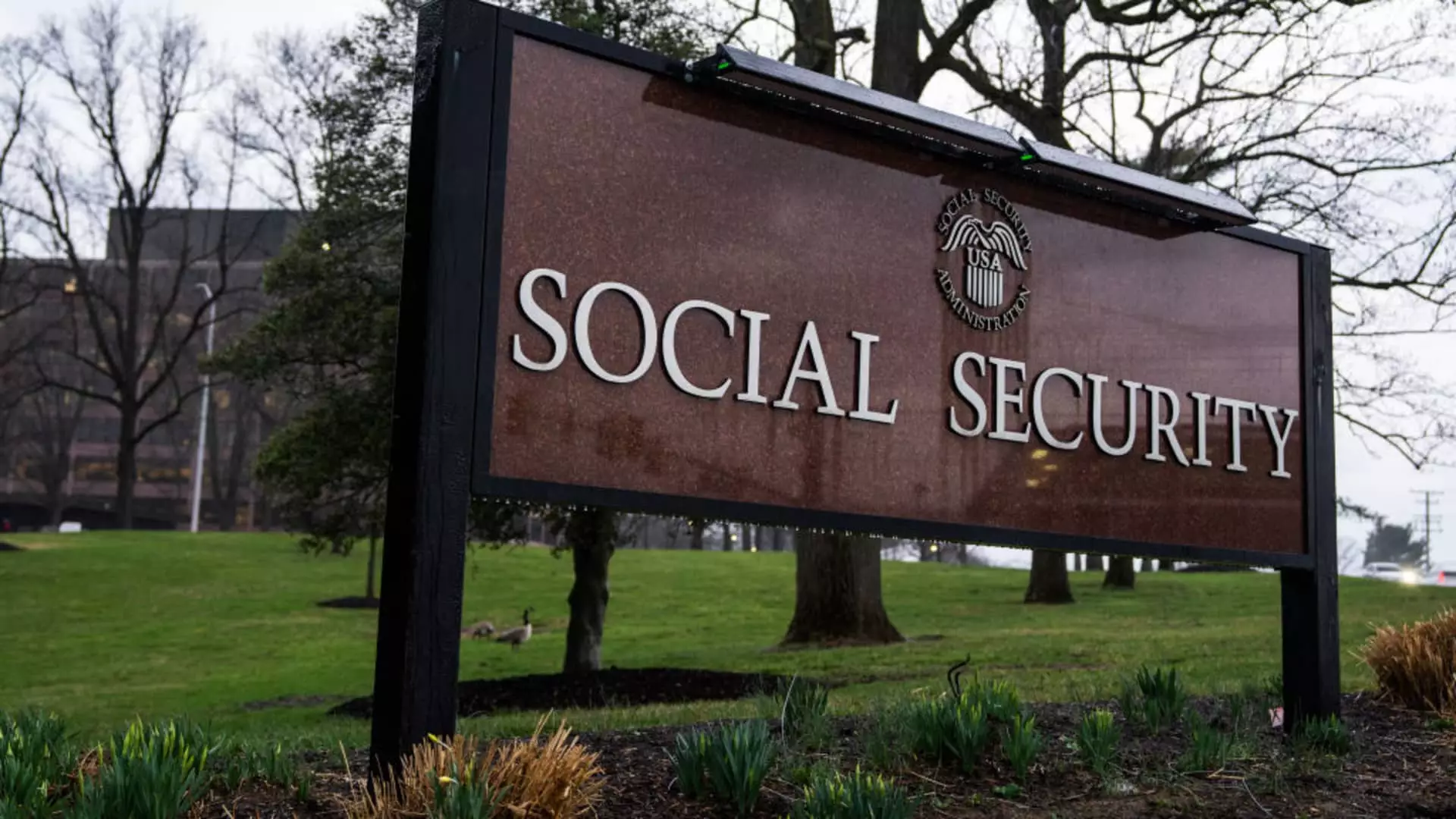In a deeply unsettling turn of events, a federal judge, Ellen Lipton Hollander, has halted the Trump administration’s Department of Government Efficiency (DOGE) from probing personal information at the Social Security Administration (SSA). This judicial intervention is more than just a legal maneuver; it highlights the dysfunction lurking in the heart of a system responsible for millions of Americans relying on Social Security and Supplemental Security Income to maintain their livelihoods. The implications of this case go far beyond the legal framework; they weave into a terrifying narrative of governmental overreach, privacy invasion, and administrative chaos.
With the SSA issuing millions of benefit checks each month, any hint of disruption raises immediate alarm. Acting Commissioner Lee Dudek has urged that the ruling might compromise the SSA’s ability to deliver essential services, an issue that shouldn’t be taken lightly. The DOGE may not be an official governmental entity, but with its dubious ties—most notably, its association with Tesla CEO Elon Musk—it has raised eyebrows and ignited fears of overreach into sensitive private information.
Shrouded in Irregularities
The court ruling mandates that SSA personnel, including Dudek himself, must refrain from permitting DOGE delinquents access to any personal data that could lead to identifying individuals. In an equally bone-chilling directive, the judge ordered DOGE members to eradicate any personally identifiable information they’ve mined since the onset of this administration. This broad-reaching order has left Dudek feeling the heat; he emphasized that the verbiage of the ruling could implicate virtually any SSA employee as a potential DOGE affiliate.
His clarification request—and the subsequent expressions of confusion stemming from SSA officials—indicate a disarray that could cripple SSA operations. In this convoluted bureaucratic tango, the risk exists that the very employees meant to protect and serve the livelihoods of millions could become entangled in a quagmire of compliance that overwhelms resources and destabilizes service delivery.
The Heavy Political Fallout
Advocacy groups have responded vocally to Dudek’s warnings, echoing concerns that the integrity of Social Security—an institution that has, nearly for a century, delivered unwavering support to American families—is now under siege. Lee Saunders of the American Federation of State, County and Municipal Employees did not mince words, stating, “Social Security is now on the brink,” laying blame squarely on Dudek’s shoulders, and indicative of the broader incompetence within the administration.
The fallout has taken on an adversarial tone, resembling a political showdown rather than a civil discourse focused on the welfare of citizens. The contradictions between Democrats and Republicans reflect a deeply partisan divide, where the former calls this a “five-alarm fire,” while the latter dismisses it as scaremongering. This dynamic reflects a glaring truth: neither party seems adequately equipped to navigate the complexities of sustaining essential services amidst a climate of political hostility. The fact that President Trump did not dismantle Social Security benefits during his first term is overshadowed by the chaos his administration has initiated where existing services are being threatened.
The Broader Implications of a Distrusted Leadership
Dudek’s apologies for past mistakes are a classic case of too little, too late. His tenure has been marred by scandals and blunders that the president has failed to address adequately, leading to calls from various sectors labeling his leadership as the “darkest in Social Security’s nearly 90-year history.” Nancy Altman, president of Social Security Works, voiced what many are fearfully acknowledging: Dudek’s leadership has sown chaos and destruction. This sentiment resonates deeply within the community that the SSA serves, as beneficiaries grow increasingly anxious about their futures.
As the dust settles from this latest legal skirmish, the ripple effects will surely continue to unsettle a system that should be supportive, not adversarial. The emphasis on efficiency above citizen welfare serves only to expose the hollowness at the core of such government initiatives—efforts that purport to enhance service but actively undermine it instead.
The Path Forward: A Call for Conscious Governance
What remains to be seen is how this chaotic chapter unfolds. Is there a path to rectify the sins of leadership inadequacies? As a nation that prides itself on the welfare of its citizens, it is imperative we hold those in power accountable, ensuring that systems designed to support our most vulnerable not only survive but thrive in the face of adversity. If this debacle teaches us anything, it is that no initiative should come at the cost of individual rights and community trust. It’s time for a call to conscious governance that prioritizes the people over political expediency.

